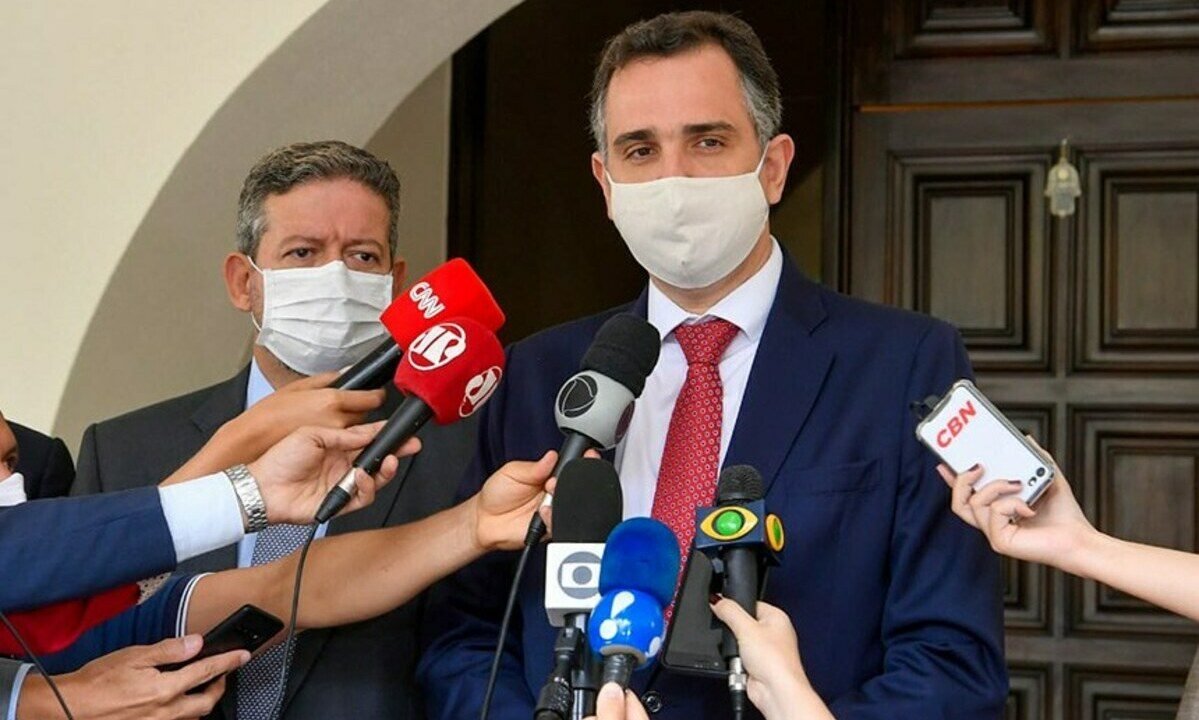Organizations call for commitment from congress leaders on press freedom
Conectas and seven other entities that defend freedom of expression and press freedom publish an open letter to mark Journalist Day
 Foto: Agência Senado
Foto: Agência Senado
Eight organizations linked to the freedoms of the press and expression filed; on Wednesday, 07/20/2021 (Journalist’s Day), an open letter addressed to the Senate president, Rodrigo Pacheco (DEM-MG), and the Chamber of Deputies, Arthur Lira (PP-AL). The demonstration calls for the commitment of the leaders of the National Congress to the freedom of the press and the security of journalists and communicators in the country.
The joint document provides seven recommendations for the National Congress to act in order to make Brazil a safe environment for the press, ensuring mechanisms of transparency with easy access to information. He, however warns that Pacheco and Lira are on the lookout for bills in progress in the two houses that may negatively impact press freedom or restrict the work of these professionals in the country.
The said letter was signed by Abraji (Brazilian Association of Investigative Journalism), Article 19, Conectas Human Rights, Intervozes, National Federation of Journalists, Vladimir Herzog Institute, Committee for the Protection of Journalists and Reporters without Borders.
Read more
The proposal was presented on Wednesday, in a virtual meeting between representatives of these organizations and Senator Rodrigo Pacheco.
The text recalls that Brazil is starting to lose sleep on worrying scenarios of growing threats, attacks on journalists, and restrictions on press freedom.
All these situations contionously make the environment increasingly hostile to practice the profession:
“Difficulty in accessing public data, judicial censorship, removal of content, threats and physical attacks, defamatory campaigns and online harassment, among others are some of the elements that make up the scenario. In addition to that, the impunity in crimes committed against journalists ”.
For organizations, “despite international commitments and guarantees established in the Federal Constitution of 1988, Brazil has failed to protect press freedom and presents risks of setbacks in relation to human rights”.
According to the representatives of the organizations, the objective of the meeting was to take advantage of the renewal of the leadership of the National Congress to reinforce the importance of legislative power in guaranteeing freedom of the press. In March 2020, part of the organizations had already met with the then president of the Chamber of Deputies, Rodrigo Maia, to report concrete problems faced by entities that follow the constitutional guarantees of freedom of expression.
Abraji is analyzing almost 40 proposals simultaneously in the two legislative houses, whose focus is related to the press and freedom of expression.
Here are the seven recommendations sent to Congressional leaders:
- To ensure that all bills that have impact on access to information, journalistic work and freedom of the press are widely discussed with civil society, press freedom organizations, journalists and experts on the respective topics;
- To ensure that the National Congress Council’s Social/ Communication Council advisers are in place and fully functioning; even if remotely, so that the bills dealing with communication issues are considered by the aforementioned Council, before submitting for the final vote;
- To ensure the smoothness of internal legislative procedures in the appraisal of bills, as well as transparency and due disclosure of information in a timely manner, to guarantee technical analysis and external debate with society;
- To Ensure that any approved bill will be in line with the commitments assumed by Brazil, internationally in relation to the right of access to information and freedom of press;
- To ensure that any approved bill will be in line with constitutional guarantees that prohibit censorship and protect press freedom, also the right to information, will be in accordance with international standards and be a great instrument for strengthening democracy and human rights;
- To adopt a public discourse that prevents violence against communicators and build a favorable environment for the free exercise of journalism with freedom of expression;
- To Condemn publicly, unequivocally and systematically any form of violence against communicators and encourage the competent authorities to act with due diligence and speed in investigating the facts and punishing those responsible appropriately.
Read the full letter here
Monitoring entities on the situation of journalists
In the document sent to the leaders of the legislative branch, the organizations cite research that indicates the aggravation of communicators here in Brazil.
According to the second survey by Fenaj (National Federation of Journalists), in 2020 there were 428 attacks on journalists and the press, 105.77% more than in 2019. The discrediting of the press was the most frequent violence: 152 cases (35, 51%). President Jair Bolsonaro, alone, was the biggest aggressor with 175 cases (40.89% of the total).
Reporters without Borders listed nothing short of 580 episodes of attacks on the press in official statements by the highest echelons of government, among ministers, parliamentarians and the President of the Republic, in the year 2020 alone.
Abraji data reveals that, in a single month of 2021, the president was responsible for 11 of the 22 offenses made against journalists by public officials. Bolsonaro is the blocking champion of reporters on Twitter. Also, according to the association, female journalists were victims of more than half of the aggressions in the digital environment. In the first half of 2020 alone, Abraji had recorded 167 violations of freedom of expression.
Last year, Brazil ranked eighth in the Global Impunity Index for homicides of journalists, according to data from the Committee to Protect Journalists, which is worsening compared to 2019, in which it ranked ninth.






